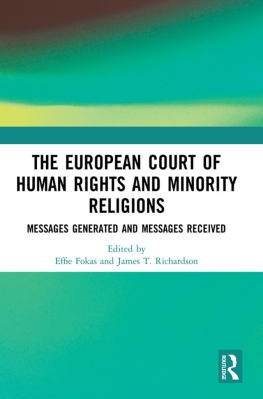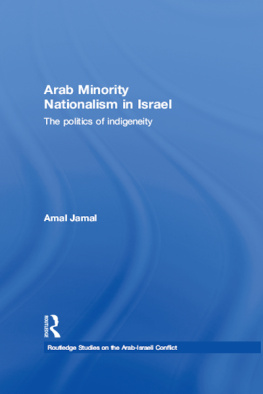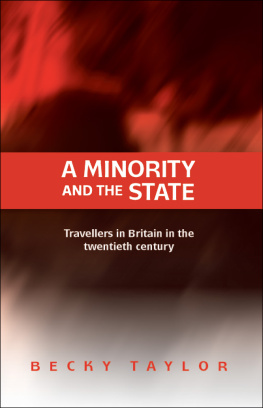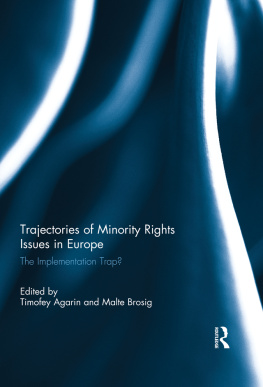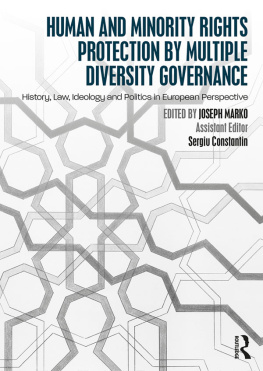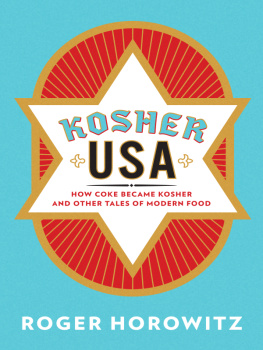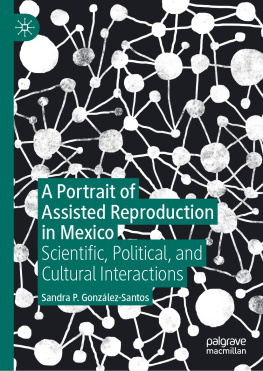MAKING BODIES KOSHER
Fertility, Reproduction and Sexuality
GENERAL EDITORS:
Soraya Tremayne, Founding Director, Fertility and Reproduction Studies Group and Research Associate, Institute of Social and Cultural Anthropology, University of Oxford.
Marcia C. Inhorn, William K. Lanman, Jr. Professor of Anthropology and International Affairs, Yale University.
Philip Kreager, Director, Fertility and Reproduction Studies Group, and Research Associate, Institute of Social and Cultural Anthropology and Institute of Human Sciences, University of Oxford
Understanding the complex and multifaceted issue of human reproduction has been, and remains, of great interest both to academics and practitioners. This series includes studies by specialists in the field of social, cultural, medical, and biological anthropology, medical demography, psychology and development studies. Current debates and issues of global relevance on the changing dynamics of fertility, human reproduction and sexuality are addressed.
Recent volumes:
Volume 42
Making Bodies Kosher: The Politics of Reproduction among Haredi Jews in England
Ben Kasstan
Volume 41
Elite Malay Polygamy: Wives, Wealth and Woes in Malaysia
Miriam Koktvedgaard Zeitzen
Volume 40
Being a Sperm Donor: Masculinity, Sexuality, and Biosociality in Denmark
Sebastian Mohr
Volume 39
Global Fluids: The Cultural Politics of Reproductive Waste and Value
Charlotte Krolkke
Volume 38
Reconceiving Muslim Men: Love and Marriage, Family and Care in Precarious Times
Edited by Marcia C. Inhorn and Nefissa Naguib
Volume 37
The Anthropology of the Fetus: Biology, Culture, and Society
Edited by Sallie Han, Tracy K. Betsinger, and Amy K. Scott
Volume 36
Fertility, Conjuncture, Difference: Anthropological Approaches to the Heterogeneity of Modern Fertility Declines
Edited by Philip Kreager and Astrid Bochow
Volume 35
The Online World of Surrogacy
Zsuzsa Berend
Volume 34
Conceptions: Infertility and Procreative Technologies in India
Aditya Bharadwaj
Volume 33
Patient-Centred IVF: Bioethics and Care in a Dutch Clinic
Trudie Gerrits
For a full volume listing, please see the series page on our website: http://www.berghahnbooks.com/series/fertility-reproduction-and-sexuality
MAKING BODIES KOSHER
THE POLITICS OF REPRODUCTION AMONG HAREDI JEWS IN ENGLAND
Ben Kasstan
First published in 2019 by
Berghahn Books
www.berghahnbooks.com
2019 Ben Kasstan
All rights reserved. Except for the quotation of short passages
for the purposes of criticism and review, no part of this book
may be reproduced in any form or by any means, electronic or
mechanical, including photocopying, recording, or any information
storage and retrieval system now known or to be invented,
without written permission of the publisher.
Library of Congress Cataloging-in-Publication Data
Names: Kasstan, Ben, author.
Title: Making bodies kosher : the politics of reproduction among
Haredi Jews in England / Ben Kasstan.
Description: First edition. | New York : Berghahn Books, [2019] |
Series: Fertility, reproduction and sexuality : social and cultural
perspectives ; volume 42 | Includes bibliographical references and
index.
Identifiers: LCCN 2019011533 (print) | LCCN 2019021761 (ebook) |
ISBN 9781789202304 (open access ebook) | ISBN 9781789202281
(hardback : alk. paper)
Subjects: LCSH: Maternal and infant welfare--England--Manchester. |
Ultra-orthodox Jews--England--Manchester. | Orthodox Judaism-
England--Manchester | Infants--Care and hygiene--England-
Manchester. | Reproductive health--England--Manchester.
Classification: LCC HV752.M3 (ebook) | LCC HV752.M3 K37 2019
(print) | DDC 362.1089/924042733--dc23
LC record available at https://lccn.loc.gov/2019011533
British Library Cataloguing in Publication Data
A catalogue record for this book is available from the British Library
This work is published subject to a Creative Commons Attribution Noncommercial
No Derivatives 4.0 International licence. The terms of the licence can be found at
https://creativecommons.org/licenses/by-nc-nd/4.0/.
For uses beyond those covered in the license, contact Berghahn Books.
This work was supported by the Wellcome Trust [101955/Z/13/Z].
ISBN 978-1-78920-228-1 hardback
ISBN 978-1-78920-230-4 open access ebook
In memory of my grandparents, Esther and Raymond A. Kasstan, and with gratitude to my parents.
Grandchildren are the crowns of their elders and the glory of children is their parents.
[Tanakh] Proverbs 17: 6
For Christina.
CONTENTS
ILLUSTRATIONS
ACKNOWLEDGEMENTS
T his book would not have been conceived without the rich contributions and guidance that I have received since 2013, when I first decided to conduct research into cultures of maternity care and child health among Jews in the UK. I am indebted to all my research participants in Jewish Manchester, who will remain anonymous but deeply appreciated. It was an honour to share moments in their lives that ranged from birth to death, from chuppah to get and tears of joy to those of sorrow. In Jewish Manchester I made unlikely friends, and since leaving in 2015 I have been invited to the full range of family events and simchahs, which reflects the sheer generosity of the people who shared their time with me.
Some individuals in Manchester might not appreciate or accept everything that has been discussed in this book, but I hope they can recognise that a diversity of experiences from their neighbourhoods have been included experiences that they may not be familiar with themselves. Any errors are mine. Particular thanks go to a righteous family for providing a shelter in every sense of the word, to a rabbi who opened his door and heart to me on one rainy afternoon, to the doulas who were the inspiration behind much of this book and to all the Gehah volunteers. I will always have hacarat hatov for Adoniyahu, I., Nomi Kudrn, Treena Raffles and Caroline Maxwell as their friendship helped me to get through the ups and downs of my time in Manchester.
Weaving historical documents into this book was made possible by David Govier and Larysa Bolton at the Manchester Archives and Local History, and especially Alexandra Cropper at the Manchester Jewish Museum. I also wish to give a note of thanks to the past residents of Manchester from the late nineteenth and early twentieth centuries, who unknowingly contributed to this book through their oral histories.
Generous funding from the Wellcome Trust enabled me to conduct the research presented in this ethnography, and I am grateful for their investment in my career and for making this book openly accessible. In particular I thank Paul Woodgate and Margaret Hurley. Berghahns series on


